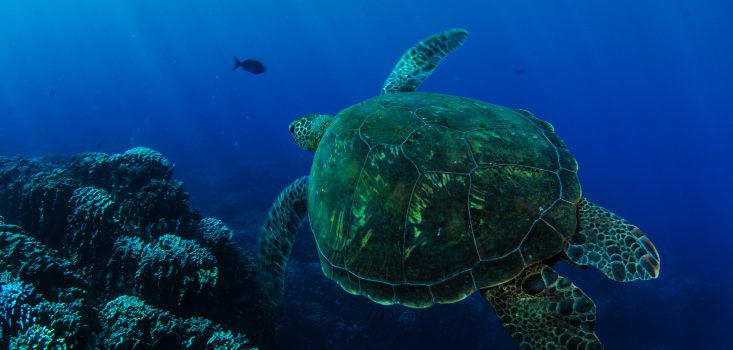On the first day of IMPAC4 in La Serena, Chile’s Ministers for the Environment, Marcelo Mena, and Minister of Foreign Affairs, Heraldo Muñoz, announced the results of a referendum held Sunday, 3rd September 2017 on Easter Island for the creation of a marine protected area. The vote, which had the largest turnout for a consultation ever held on the island, resulted in 73% approval for the creation of an MPA that would protect the island’s exclusive economic zone from industrial commercial fishing, mining and other extractive activities while grandfathering in Rapa Nui artisanal fishing.
The Pew Bertarelli Ocean Legacy Project issued the following statement in response to the vote.
Dona Bertarelli, co-chair of the Bertarelli Foundation said:
“I am delighted that the referendum has given such strong endorsement for the creation of an MPA around Easter Island. This demonstrates the value of working with local communities to achieve the best outcome to protect both their livelihoods and the oceans for generations to come.”
Matt Rand, director of the Pew Bertarelli Ocean Legacy Project said:
“This is a historic moment for the conservation of the world’s ocean, and the protection of the Rapa Nui environment and culture. We are thrilled that, after working with the community for over five years, the Rapa Nui have voted in support of a marine protected area. We are hopeful that President Bachelet will codify the Rapa Nui proposal.
There has been an extensive vetting process with the Rapa Nui and the final decision by the community is to support a marine protected area. This is the important step to hopefully realize the community’s vision to protect their ocean and culture. We have been privileged to have worked so closely with the Rapa Nui on this endeavor over the last five years. The power of this partnership between committed indigenous local people and our outside expertise has been remarkable.
The Rapa Nui have chosen conservation of the environment, their culture and their traditions over commercial exploitation. This should be commended. It’s not often that communities choose conservation over exploitation. Hopefully this sets the course for the rest of our world.”




